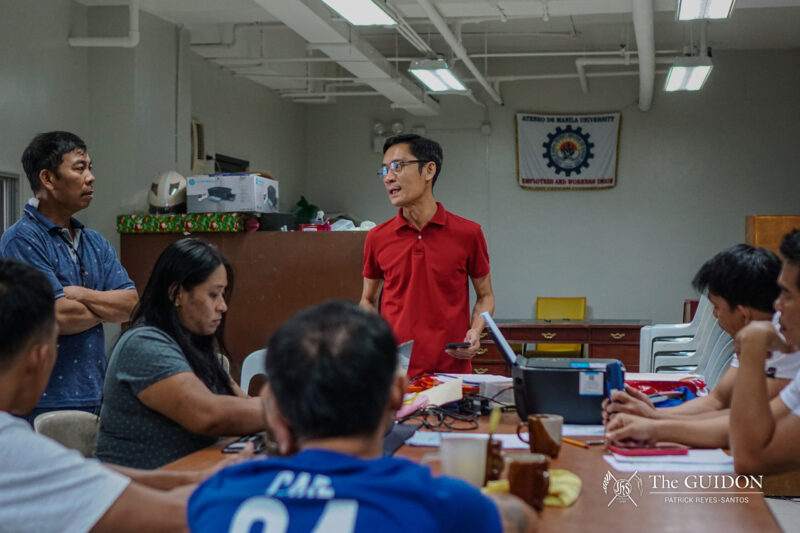A GROUP of five life sciences seniors was hailed as one of five winners of Catalyst, a technology-based competition organized by Globe Tattoo, Globe Sharpers Manila and Globe Bridging Communities.
Royce Cabello, Barry Kayanan, Miguel Martinez, Aaron Villaflores and Brian Zafra were awarded for their software idea “Clinical I.”
According to Martinez, Clinical I aims to efficiently diagnose patients with neglected tropical diseases (NTDs), which are infections that are endemic in developing countries such as the Philippines.
Catalyst was a nationwide technology competition that allowed young Filipinos to present and implement their project ideas.
Contestants had to be between 18 to 30 years old and their project ideas had to address social issues.
Catalyst began last May and the winners were announced last June 28. Each winning team was given P200,000 to begin developing their projects.
Software creation
Clinical I began as the group’s summer Biology class project. They were required to create a software idea in relation to NTDs, a topic that had previously been discussed in class.
Martinez said that their professor, Harvey Liwanag, PhD, originally came up with the basis for the program.
“He (Liwanag) said that the most experienced doctors have this skill developed over years of experience, wherein based on observing the patient, the doctor would immediately know the disease. He called it ‘clinical eye,’” said Martinez.
The group liked this idea and decided to integrate it into their class project.
“Basically, there’s a list of symptoms with a checkbox [in Clinical I] that a patient can mark. It would [not only scan for] NTDs, but [also] diseases that are similar to NTDs,” said Kayanan.
Afterwards, the software will present a probability chart to the patient that indicates his or her chances of having a particular disease.
According to Zafra, the inclusion of diseases similar to NTDs addresses the problem of misdiagnoses.
“For example, a person really has Tuberculosis but because the symptoms of Tuberculosis and Paragonimiasis are similar, a doctor might treat the patient for Paragonimiasis. That shouldn’t be, because the patient will not get better,” Zafra said in a mix of English and Filipino.
Paragonimiasis is a foodborne Trematode infection that primarily affects the lungs.
Future plans
According to Villaflores, Globe gave their team three months to develop and implement Clinical I.
“They (Globe) are also giving us a mentoring system to develop the prototype,” he said.
The Atenean software developers are now collaborating with different organizations to create Clinical I, including the Computer Society of the Ateneo, the Ateneo Innovation Center and the Department of Health.
Martinez said that he and his teammates want Clinical I to be accessible to the public in the future.
In particular, they want their software to be used by health workers situated in municipalities where NTDs are rampant, including Sorsogon, Davao and Samar.
“When a patient goes to a barangay health worker, this software will help them diagnose what NTD this patient has,” Martinez said.
However, the team stressed that Clinical I is not meant to replace doctors.
“We like to say that it’s a supplement doctor,” Martinez said.
The competition
The criteria for Catalyst awardees included innovation, implementation feasibility and impact.
According to Zafra, it was Liwanag who encouraged the group to submit Clinical I as an entry for Catalyst.
Cabello, Kayanan, Martinez, Villaflores and Zafra then had to accomplish the following to enter the competition: Submit a written document of their software proposal, create a one-minute video for Clinical I and pitch their software idea to the panel of judges.
Cabello said that they were very surprised to find out that they were one of the winners.
“There was pressure from so many people for us to do well on the software,” he said.
At the time, the five were also juggling the competition with their thesis.
Martinez added, “It (Catalyst) is an extra-curricular [activity], but still, it’s a very fulfilling and happy feeling [to have won].”






